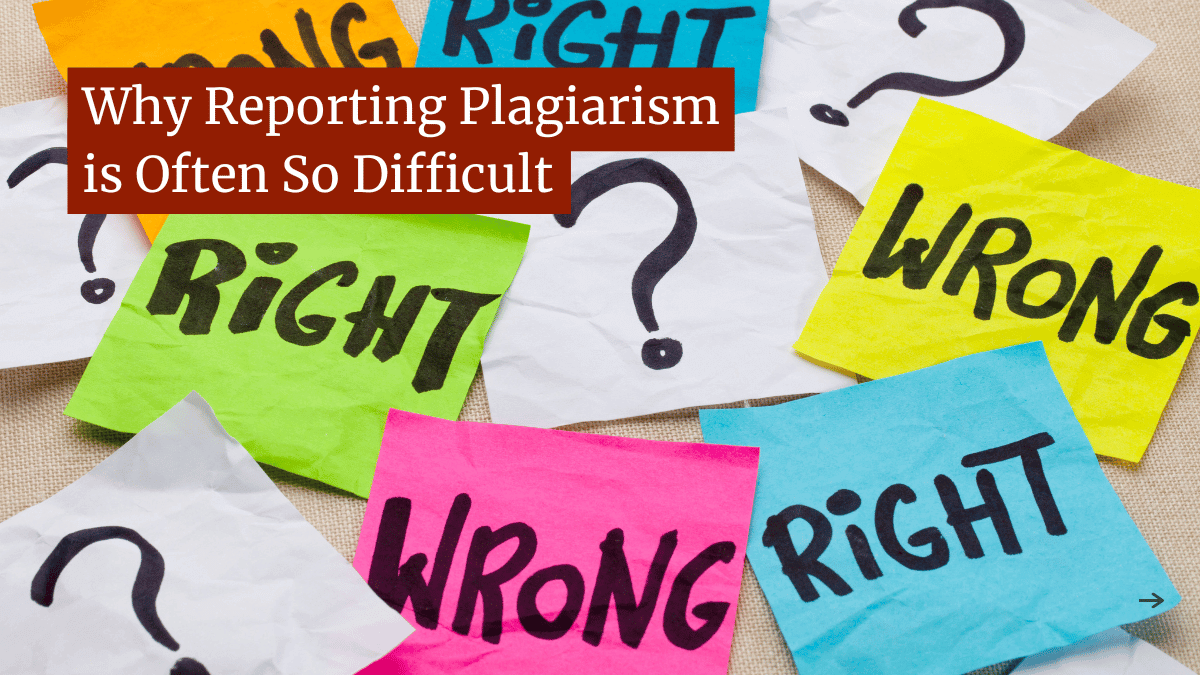The Complicated Ethics of Reporting Plagiarism

Recently, Reddit user u/jhhn had a serious problem.
A sophomore in college, she was helping a younger friend, Tia, go through the college admission process. To that end, she was highly successful, with Tia not only getting into her first choice of schools, but also receiving a full scholarship.
However, later, she learned that Tia’s acceptance wasn’t earned fully honestly. Over the course of their collaboration, u/jhhn had provided her friend with several example essays she had written, one of which Tia “barely even tweaked” and submitted as her own with significant copying and pasting.
According to u/jhhn, she had made it clear to Tia that the essays were examples only meant to be used to study techniques. Given that the essay was deeply personal, u/jhhn was extremely angry and, after gathering up all the relevant evidence, reported the plagiarism to the school.
As a result, Tia not only lost her scholarship, but lost her seat at the school.
Though u/jhhn felt justified, mutual friends accused her of “robbing” Tia of her education. Tia admitted that she didn’t expect the outcome to be so severe and began to wonder if she had done something wrong.
To help answer that, she posted her story to the subreddit /r/AITA (Am I the Asshole?) to see if others felt she was out of line. The post itself ended up becoming one of the most popular on the subreddit, earning nearly 22,000 net karma and some 5,700 comments.
Fortunately, for her, the majority of those comments were supportive, declaring her to be NTA (not the asshole). To that end, she updated her post thanking everyone for the support and adding, “All the nasty YTA (you’re the asshole) comments, you guys also helped me realize I wasn’t wrong.”
While it is impossible to verify the veracity of the story, it’s certainly more than plausible, and it points to one of the more complicated issues when it comes to plagiarism: While most agree that plagiarism is wrong, reporting it can raise some difficult questions.
This is a lesson that I know all too well.
Death Threats and Academic Consequences
In the early 2000s, I was dealing with widespread plagiarism of my work, including poetry, stories and essays. Over the course of several years, I caught and dealt with over 700 plagiarists, many of whom had taken dozens of works.
Most of those cases were mundane. Someone would post a few of my works on a random site, blog or forum and leave off my name or attribution. I would respond with a DMCA notice and get the works removed.
However, a small minority were much, much more complicated.
Several of the cases involved academic use of my work. Whether it was the school’s literary magazine, an essay contest or a school project, these cases were always thornier.
There were two reasons for that. First, I received no joy in knowing that someone would likely face academic consequences, no matter how deserved those consequences were. Second, these cases often turned ugly, with either the plagiarist or often their parent writing me with legal threats and, in at least a couple of cases, threats of violence.
It became very tempting to simply skip over and look the other way on those cases. While they angered me and frustrated me, it often felt like it wasn’t worth the headache.
The reason is simple: When you look at how important education is to someone’s future and how serious of an issue plagiarism is in academia, the potential consequences are much more dire than cases where only mild legal consequences are on the line.
This pressure to do well in education is a big part of what drives some students to commit plagiarism. However, that same pressure also pushes many professors and instructors to not report plagiarism that they detect. Not wanting to ruin students’ academic careers motivates them to handle issues in class, even when it’s not appropriate.
That, in turn, is what I would say to u/jhhn and others that struggle with reporting plagiarism. While it is definitely the right thing to do, it brings up complicated feelings that are easy to understand, even instructors deal with them and often not well.
However, the solution isn’t to avoid reporting plagiarism. The answer is for schools and universities to find equitable ways of handling plagiarism. But that can’t happen if cases aren’t reported.
With Tia’s case, there may not be a different approach since it deals with admissions, but it would be nice to know that, in most cases, reporting plagiarism wasn’t a death sentence for someone’s academic career unless it was truly deserved.
To be clear, that already the case. Very few first instances of plagiarism result in expulsion or significant academic harm. However, knowing that the possibility is there can make people wary about filing a report, even when such a report might actually help the student involved.
In short, the uncertainty u/jhhn felt is not uncommon, in fact, it’s felt every day in academia and students, instructors, administrators and third parties alike struggle with how to handle these situations.
Bottom Line
In the end, I sympathize with u/jhhn completely. It’s a tough situation, but it’s one that she was forced into by her (former) friend. She tried to provide genuine and ethical help, and her friend abused that.
Ultimately, she did the right thing reporting the plagiarism and other Redditors hit upon many of the key reasons.
It could have come back to bite her if she wanted to use her essay later. If Tia couldn’t complete that essay honestly she probably would have struggled in college. Tia was accepted under false pretenses and perhaps most importantly, Tia’s acceptance meant another student who was honest likely missed an opportunity.
Plagiarism, especially when dealing with admissions, is far from a victimless crime.
However, I also understand why she feels unsure. The backlash and consequences, while predictable, are not u/jhhn’s fault. Tia is the one who chose to plagiarize, Tia put u/jhhn in that position and for her there were no good answers. Ignoring it meant ignoring an injustice that was committed against her and others, reporting it meant likely dire consequences for Tia.
Neither solution feels good, especially when you are the victim. But it is easy to see why she was unsure about her actions. To that end, I’m glad Redditors were, by in large, very supportive of her,
She did the right thing, even though it was neither easy nor enjoyable. The comments on Reddit give me hope that others would follow in her footsteps if they were faced with a similar situation.
Want to Reuse or Republish this Content?
If you want to feature this article in your site, classroom or elsewhere, just let us know! We usually grant permission within 24 hours.
